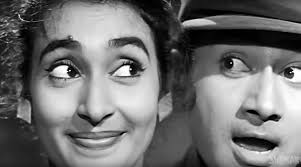Dev Anand was the greatest Style Icon of India. He had a fascination for hats or caps. In almost every film we can see Dev Anand in a different cap or headgear. In his personal life too he was very fond of caps, scarfs, jackets, wrist watches and pens. He had a great collection of pens. In an interview his son, Suneil Anand told that “My father had a fetish for hats and pens. It was a part of his style statement. He was very fond of writing and he loved collecting pens. He had a huge collection.”
Recall the Jewel Thief cap of Dev Anand. It became so popular by the dashing Dev Anand in the film (1967) almost every youth of that time bought that cap. There is a story behind this cap. Dev himself told in an interview that once he was roaming around the street of Copenhagen he saw this cap in a showroom of a shop. He liked it at the first sight and immediately purchased it. Most of the hats, caps or scarfs he used in his movies were from his personal wardrobe.
In his autobiography Romancing with Life, Devsaab reminisces: “Baazi gave me an image that stayed in the minds of people, and made a genuine star out of me. For the first time, I felt and saw what stardom was in terms of adulation and fan following. I became a phenomenon after the release of Baazi.”
Still from Baazi 1951
After Baazi, this was the second film in which Dev Anand also came through as an actor with a unique style of his own. Dev Anand wears a hat in this film which became very popular those days. Even many film heroes wore the same type of hat in their films.
Still from Jaal 1952
In 1954 film Taxi Driver Dev Anand played a Bombay Taxi Driver. He wears a cap most of the time. This cap later became very popular among the Taxi Drivers of Bombay
Still from Taxi Driver 1954
In Hum Dono Dev Anand wears a Jungle Hat. This hat, he took from one of his Army Officer friend.This hat he wore in the song "Mein Zindagi Ka Saath"
Still from Hum Dono 1961
In this blog, I have selected the images and songs of Dev Anand wearing different headgears this will be interesting for all the Dev Anand fans.
Still from Milap 1955
Still from Munimji 1955
Still from Funtoosh 1956
Still from Funtoosh 1956
Nau Do Gyarah 1957
Dushman 1957
Kala Pani 1958
Maya 1961
Tere Ghar Ke Samne 1963
Guide 1965
Jewel Thief 1967
Prem Pujari 1970
Gambler 1971
Banarsi Babu 1973
Song from Taxi Driver 1954
Song from Funtoosh 1955
Song from Funtoosh 1955
Song from Nau Do Gyarah 1957
Song from Jewel Thief 1967
Song from Prem Pujari 1970
Song from Prem Pujari 1970





































